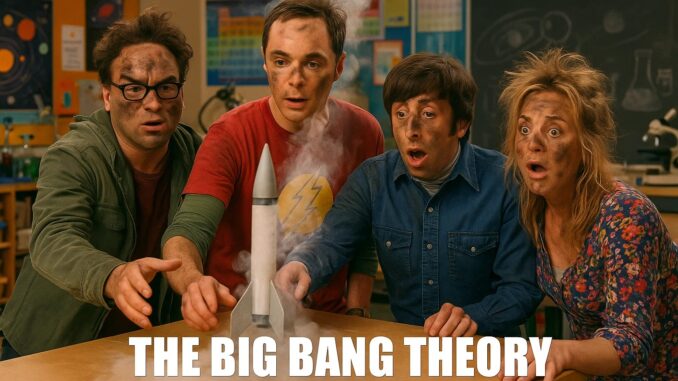
Before The Big Bang Theory, geek culture was rarely treated as a central theme in mainstream television. Science, comic books, video games, and role-playing games were often reduced to passing jokes or stereotypes. But this series flipped the script, placing those very elements at the heart of the comedy—and audiences embraced it like never before.
For twelve seasons, the show introduced millions of viewers to concepts they might never have encountered otherwise: quantum mechanics, string theory, and even the intricacies of Star Trek trivia. While not every scientific explanation was perfect, the effort to make science both entertaining and accessible marked a turning point in television. Suddenly, it was “cool” to laugh along with characters who debated comic book timelines or argued over the physics of superheroes.
Equally important was the way the show balanced nerd culture with heart. The friendship between Leonard, Sheldon, Howard, and Raj was filled with awkward misunderstandings, but also with genuine loyalty. Their bond reminded fans that everyone, no matter how unusual their interests, seeks acceptance and belonging. The addition of Penny, and later Amy and Bernadette, brought a new layer of warmth and relatability, showing that geek culture wasn’t limited to men in comic shops but could grow into relationships, marriages, and families.
The series finale in 2019 was a cultural event, watched by millions who had grown up alongside the characters. For many, it felt like saying goodbye to old friends. Yet the legacy of The Big Bang Theory continues today—not just through reruns and streaming, but also through its influence on other shows that now embrace nerd culture instead of mocking it. The sitcom proved that science can be funny, comic books can be mainstream, and “nerds” can be the heroes of their own stories.
For fans, the show’s enduring appeal lies in its perfect mix of humor, heart, and relatability. Everyone sees a bit of themselves in Leonard’s insecurities, Sheldon’s quirks, Raj’s struggles, or Howard’s ambitions. More importantly, it normalized passions that were once considered niche, allowing fans to embrace their interests without shame.
In the end, The Big Bang Theory was more than just a comedy—it was a cultural shift. It made people laugh, yes, but it also made people proud of who they were and what they loved. And that is why, years after the finale, it remains one of the most beloved and influential sitcoms of all time.